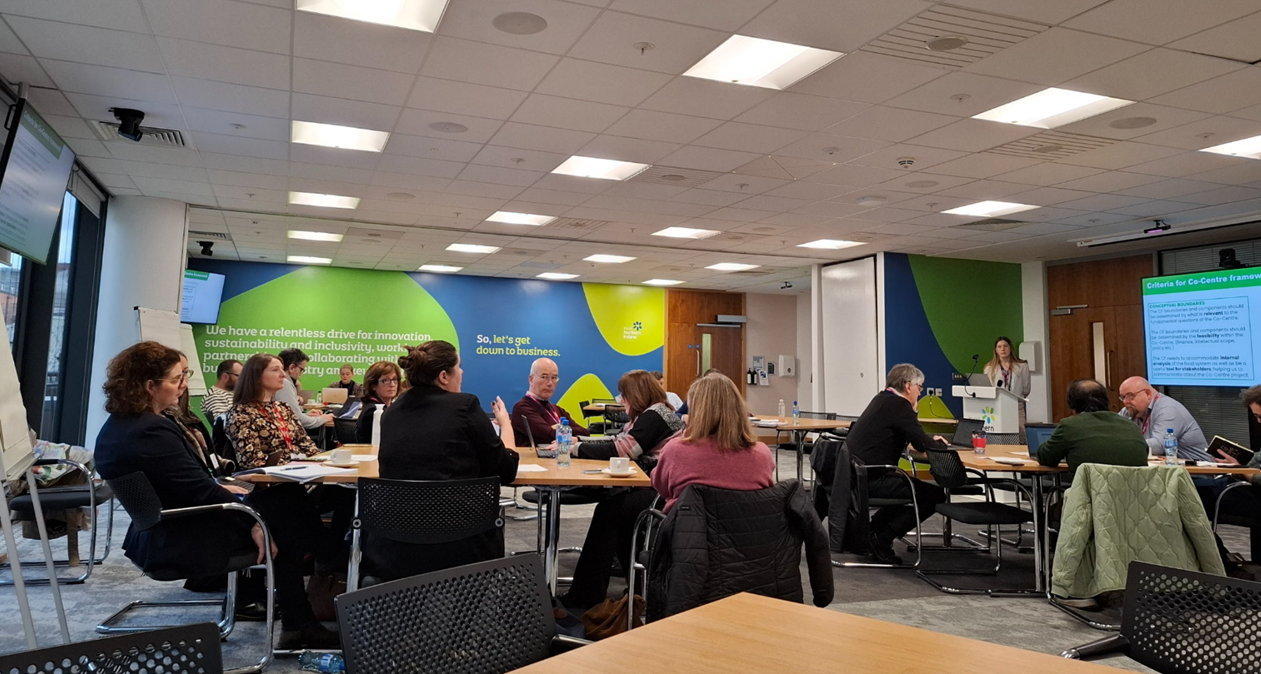A bold new tool could help revolutionise how Ireland and the UK grow, consume, and govern food—cutting waste, reducing emissions, and making healthy diets more accessible to all.
The newly launched Food Co-Centre Conceptual Framework has been developed by researchers at the Environmental Change Institute and offers a practical blueprint for transforming outdated and unsustainable food systems, tackling everything from climate impact and affordability to supply chain resilience and public health.
The Framework is designed to guide better decisions by governments, industry, researchers, and civil society on how food is produced, distributed, and consumed.
The model came about following a study by Dr Alice Gilmour, Food System Analysis Researcher at the Environmental Change Institute (ECI), along with ECI colleagues Dr John Ingram, Senior Researcher and Dr Monika Zurek, Food System Transformation Group Leader.
Dr Gilmour, lead author of the study, said:
This framework will help policymakers and food systems stakeholders avoid a siloed approach as it provides the wider context of the entire food system. It brings together insights from industry, NGOs, government, and academia to guide smarter, more sustainable decisions.”

The researchers say food systems across both Ireland and UK are under growing pressure—from climate change and biodiversity loss to rising obesity, deepening food insecurity, and supply chain shocks triggered by events like Brexit, COVID-19, and the war in Ukraine. Irish agriculture alone is responsible for 38% of the country’s greenhouse gas emissions, while around 60% of adults in both countries are overweight or obese. Access to healthy, affordable food remains a daily challenge for many, especially in lower-income and rural communities.
The three ECI researchers carried out the work as members of the Co-Centre for Sustainable Food Systems, a six-year programme which launched in May 2024 as a large-scale research program involving 20 research institutions across the Republic of Ireland, Northern Ireland and Great Britain.
The Co-Centre’s vision is to develop and promote innovative and transformative interventions that will encourage a move toward healthier diets and significantly enhance environmental, economic, safe and equitable food system outcomes by 2050, aiming to position Ireland and the UK as global leaders in research and innovation for positive and sustainable change.
Built through collaboration
The model was the result of a co-designed approach, involving an extensive process of more than 70 stakeholders—from farmers and researchers to policymakers and food industry representatives. The team conducted interviews, focus groups, webinars, and workshops to ensure the framework reflects real-world challenges and opportunities.
It maps core food system activities like production, processing, retail, and consumption; the drivers that influence them, such as climate change and affordability; and the outcomes they produce—from public health and economic resilience to environmental sustainability.
Importantly, the framework aims to avoid siloed thinking by helping different sectors understand their shared impact and potential leverage points.
Beyond “Farm to Fork”
Unlike earlier models, the Co-Centre framework goes well beyond the traditional “farm to fork” narrative. It includes often-overlooked but critical components—such as food waste, global environmental impacts, political regulation, affordability, and feedback loops that show how decisions in one part of the system can impact others.
One workshop participant noted: “We used to say ‘farm to fork,’ but it’s probably a bit before farm and a bit after the fork.” That systems-based thinking, which integrates social, environmental, and economic drivers, is what makes this framework uniquely positioned to support transformation.
The framework also adopts a “One Health” approach, emphasising that the health of people, animals, and the environment are deeply interconnected.
A tool for action
While the framework is static and does not yet capture dynamic changes or power imbalances, it offers a clear foundation for action. It has already been endorsed as a useful tool for aligning with national strategies such as Ireland’s Food Vision 2030 and the UK’s National Food Strategy.
Backed by the Co-Centre’s broader mission to deliver environmental, economic, and social sustainability by 2050, the framework is expected to support future food policies, business practices, and community initiatives.
Read the full paper in Frontiers in Sustainable Food Systems: Conceptualising the Irish and UK food systems



